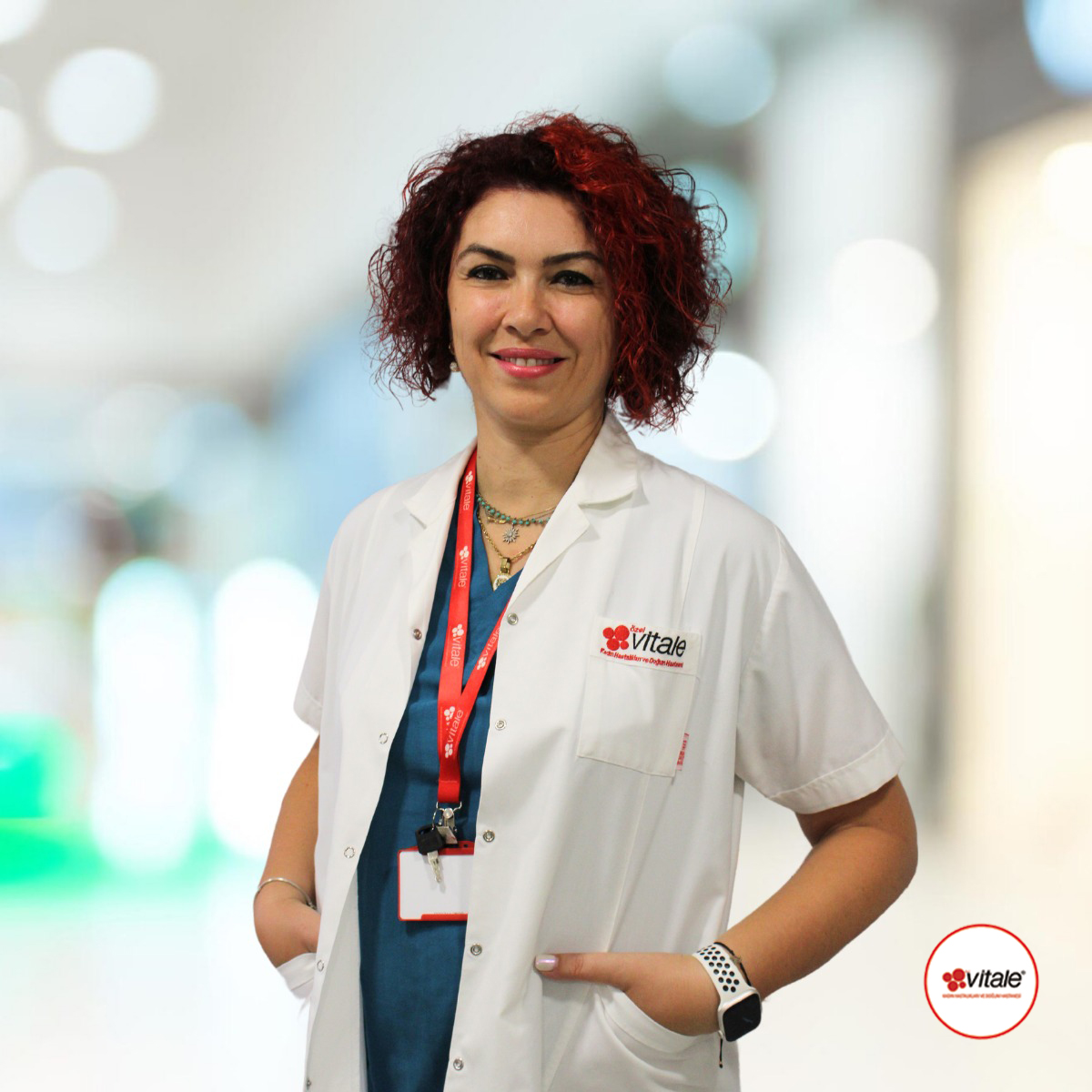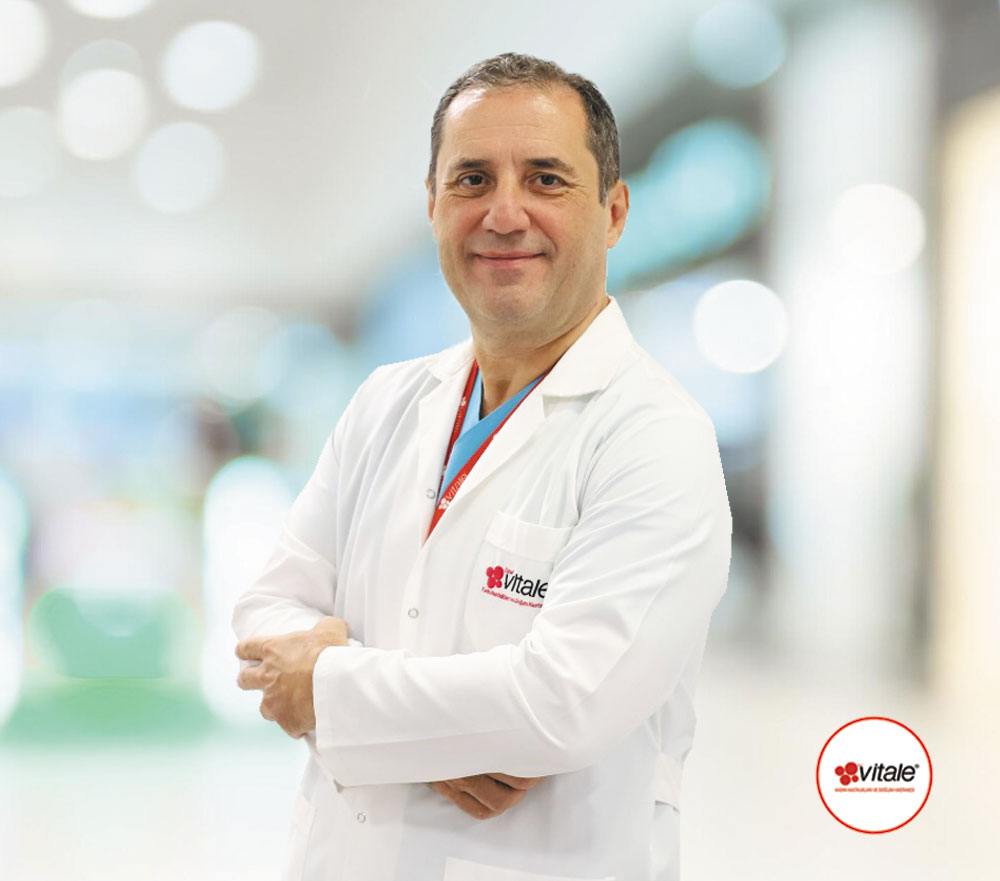In vitro fertilization in Turkey (IVF)
Treatment of Polycystic Ovaries at Vitale Hospital


What is In Vitro Fertilization (IVF)?
In vitro fertilization (IVF) is an assisted reproductive technology used to help couples struggling with infertility. During IVF, eggs are retrieved from the ovaries and fertilized with sperm in a laboratory, creating embryos. These embryos are then transferred into the woman’s uterus with the hope of achieving pregnancy.
Table of Contents
ToggleWho can undergo IVF?
In vitro fertilization (IVF) is suitable for individuals and couples facing various fertility challenges. Candidates for IVF typically include:
- Women with blocked or damaged fallopian tubes, IVF bypasses the fallopian tubes by fertilizing the egg outside the body.
- Couples with male infertility issues, men with low sperm count or poor sperm motility can benefit from IVF, often combined with intracytoplasmic sperm injection (ICSI).
- Women with ovulation disorders or premature ovarian failure, IVF can help women who don’t ovulate regularly.
- Unexplained infertility, Couples who have not been able to conceive after trying for a year or more may turn to IVF.
- Same-sex couples or single women, IVF with donor sperm or eggs can assist with family planning.
Ultimately, fertility specialists assess each case to determine if IVF is the most appropriate treatment option based on medical history and fertility challenges.
Tests to be Applied to Women During IVF Treatment
- Ovarian Reserve Testing: Measures hormone levels (like AMH, FSH, and estradiol) to assess the quantity and quality of a woman’s eggs.
- Ultrasound Scans: Evaluates ovarian follicles and checks for any abnormalities in the uterus and ovaries.
- Hormone Panel: Assess key hormones such as LH, prolactin, and thyroid hormones, which impact fertility.
- Infectious Disease Screening: Tests for infections like HIV, hepatitis, and syphilis to ensure a safe environment for embryo development.
- Endometrial Biopsy (if necessary): Examines the endometrial lining to confirm it is optimal for embryo implantation.
- Genetic Screening (optional): Identifies potential genetic issues that could affect fertility or embryo health.
Tests Performed on Men Before IVF Treatment
- Semen Analysis: Assesses sperm count, motility, morphology, and overall health to determine fertility potential.
- Hormone Panel: Measures levels of testosterone, FSH, and LH, which play crucial roles in sperm production and fertility.
- Genetic Screening: Identifies genetic abnormalities that may affect sperm health or increase the risk of inherited conditions.
- Infectious Disease Screening: Tests for infections like HIV, hepatitis, and syphilis to ensure safe handling and fertilization of the sperm.
- DNA Fragmentation Test: Examines the integrity of sperm DNA, which can impact embryo quality and implantation success.
Types of IVF Treatment in Turkey
Turkey offers a wide range of IVF treatments to suit various fertility needs. These include:
In this standard procedure, eggs are retrieved from the ovaries, fertilized with sperm in a laboratory, and then the embryos are transferred to the uterus. This method is suitable for couples facing issues such as blocked fallopian tubes or male infertility.
ICSI is often used in cases of severe male infertility. A single sperm is injected directly into the egg to facilitate fertilization. This technique is commonly combined with IVF to improve fertilization rates.
For women with poor egg quality or premature ovarian failure, donor eggs are an option. Similarly, donor sperm can be used for male infertility or for single women and same-sex couples seeking IVF.
This technique is used to screen embryos for genetic disorders before they are implanted in the uterus. It is particularly recommended for older women or couples with a history of genetic diseases.
In some cases, embryos are frozen after fertilization and transferred at a later date. This allows for flexibility in timing and can be used in subsequent IVF cycles without the need for new egg retrieval.
IVF Treatment in Turkey: A Detailed Process
Turkey, particularly cities like Antalya, has become a leading destination for IVF due to its advanced medical facilities and affordable prices. The IVF process in Turkey follows international standards and consists of several key steps:
The Best IVF Hospital in Turkey: Vitale Hospital
Vitale Hospital is renowned as one of the top IVF clinics in Turkey, offering cutting-edge fertility treatments with high success rates. Located in Antalya, Vitale Hospital provides comprehensive services, from diagnosis to advanced reproductive technologies, making it a popular choice for both local and international patients.
Key features of Vitale Hospital include:
- Experienced Medical Team: The hospital boasts a highly skilled team of fertility specialists, embryologists, and nurses, all dedicated to providing personalized care for each patient. Their expertise covers a wide range of infertility issues, ensuring tailored solutions for individual needs.
- State-of-the-Art Technology: Vitale Hospital is equipped with the latest IVF technologies, including advanced embryology labs and genetic testing, such as Preimplantation Genetic Diagnosis (PGD), which helps improve success rates by ensuring only healthy embryos are transferred.
- Patient-Centered Approach: With a focus on patient comfort, Vitale Hospital offers support services for international patients, including translation assistance, travel arrangements, and accommodation options. This makes the treatment process smoother and more convenient for couples traveling from abroad.
- High IVF Success Rates: Thanks to its modern facilities and expert team, Vitale Hospital has a strong track record of IVF success, particularly for couples with challenging infertility cases.
IVF Success Rates in Turkey and Factors Influencing Them
The success rate of IVF in Turkey depends on several factors, including the age of the woman, the quality of the embryos, and the clinic’s expertise. On average, the success rate for IVF in Turkey ranges from 50% to 60%, which is competitive with global standards. Factors that can improve success rates include:
- IVF success declines after the age of 35.
- Certain infertility issues, like blocked fallopian tubes, have higher success rates with IVF.
- High-quality labs and experienced specialists improve outcomes.
Patients should consider these factors when choosing a clinic to increase their chances of a successful pregnancy.
Age Limit for IVF in Turkey: Are There Restrictions?
While Turkey offers high-quality IVF services, there are certain age-related restrictions. Most clinics in Turkey prefer to treat women up to the age of 45 due to declining success rates in older women. However, after age 40, IVF success rates significantly decrease, and additional considerations such as donor eggs might be suggested. For women above this age, clinics may recommend genetic testing of embryos (PGD) to improve success chances.
Cost of IVF in Turkey: Affordable Fertility Solutions
One of the key reasons for Turkey’s growing popularity in fertility treatments is the affordability. The average cost of IVF in Turkey is significantly lower than in Europe or the U.S. On average, IVF treatment costs in Turkey range from $8,000 to $12,000 per cycle, depending on the clinic and any additional treatments required. This includes:
- Consultation fees and fertility tests
- Medications for ovarian stimulation
- Egg retrieval and embryo transfer
- Laboratory costs
By comparison, IVF cycles in the U.S. or U.K. can cost up to $20,000 to $30,000 or more, making Turkey a budget-friendly option for many international patients.
Doctors
Op. Dr. Nalan CİHANGİR
Gynecology and Obstetrics Specialist

Op. Dr. Ali Fuat ŞENGÖR
Gynecology and Obstetrics Specialist

Op. Dr. M. Taner KILIÇ
Gynecology and Obstetrics Specialist

Op. Dr. Sema MÜLAYİM
Gynecology and Obstetrics Specialist

Op. Dr. Esra ÜNAL
Gynecology and Obstetrics Specialist

Op. Dr. R. Hakan GÜRALP
Gynecology and Obstetrics Specialist

FAQ
Yes, Turkey is a popular destination for IVF treatment due to its advanced medical facilities, experienced doctors, and competitive costs. Many clinics offer high success rates and cater to international patients with personalized care.
The IVF process in Turkey typically takes around 4 to 6 weeks from the start of ovarian stimulation to embryo transfer. This timeline may vary based on individual response to treatment and any additional procedures needed.
The success rate for the first round of IVF varies, but generally ranges between 40% and 50% depending on the woman's age and other health factors. Younger women often have higher success rates compared to those over 35.
IVF involves some discomfort, such as injections for hormone stimulation and minor pain during egg retrieval. However, most women find the procedure manageable, and pain relief options are available if needed.
IVF failure can occur due to factors like poor egg or sperm quality, implantation issues, or genetic abnormalities in the embryos. Repeated failure may require further investigations and adjustments to the treatment plan, such as genetic testing or donor options.


